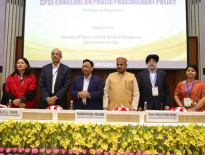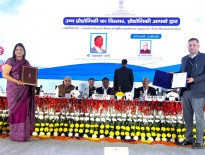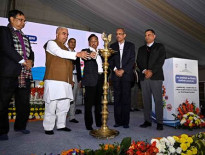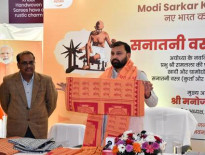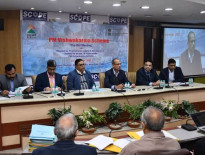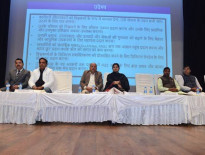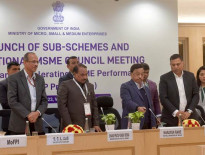Share
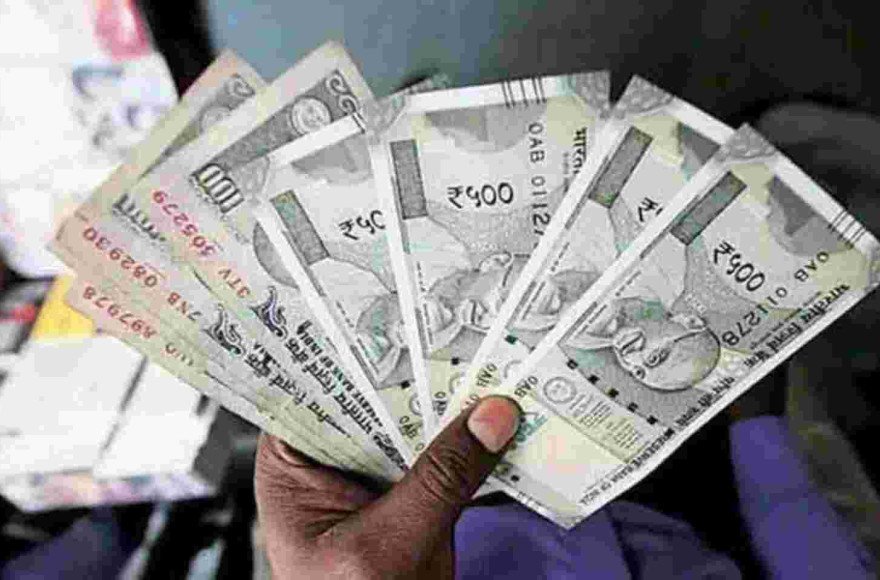
ECLGS was announced as part of the Atmanirbhar Bharat package in May 2020 with the objective to help businesses including MSMEs to meet their operational liabilities and resume businesses in view of the distress caused by the Covid-19 crisis, by providing banks, 100 per cent guarantee against any losses suffered by them due to non-repayment of the funding by borrowers.
The stakeholders of Emergency Credit Line Guarantee Scheme (ECLGS) and Loan Guarantee Scheme for Covid-Affected Sectors (LGSCAS) have raised demand for further extension of the scheme during a review meeting which was held in New Delhi on February 22, 2023. These schemes will be closed on March 31 this year.
A section of the SME sector feels ECLGS is helping banks to recover dues rather than recovery of the small businesses post Covid-19 impact. A source familiar with the development said that the Department of Financial Services (DFS) is currently taking feedbacks from various stakeholders about these schemes. However, no decision has been taken as yet if the scheme should be extended further, he added.
Talking to Bizz Buzz, former SBI chairman, Rajnish Kumar says, “The scheme was launched by the government during the Covid period and the aviation sector was also included under the scheme later on. The scheme must continue, depending upon the budgetary resources available with the government, he said. However, he was quick to add that banks have to see the risk assessment to understand the situation while providing loan under the insurance-backed scheme. Hence, they have every right to ask questions to the borrowers.
While all banks have been extending additional credit facilities under ECLGS to eligible borrowers, there are few observations made by the SME Chamber of India amongst the beneficiaries. The SME sector has some different view on this. First, the credit support is not given to the extent required or provided under the scheme. Secondly, in most of the cases, banks are recovering the over-dues from fresh amount of loans released under ECGLS.
In both situations, borrowers, especially MSME sector, are not getting desired relief. It is helping banks to recover dues rather than recovery of the small businesses post Covid-19 impact, says a communication which has been sent by the chamber to the Finance Ministry.
Further, the communication goes on, with such fresh loans (not being used for business) the debt burden of Micro, Small and Medium Enterprises (MSME) borrowers is getting increased making their businesses unviable and vulnerable to default. Therefore, the chamber has urged the Ministry to look into it and make this much required emergency support really workable solution. Moreover, it has suggested that all the overdue amounts since pandemic should be clubbed together and treated separately as working capital term loans (WCTL) rather than instant recovery of previous dues from fresh loans. Chandrakant Salunkhe, Founder and President – SME Chamber of India, says, “The fresh loans under ECLGS can be granted to the desired extent by way of long term soft loans. These steps may give much breather to small borrowers and they may be able to re-stabilise their businesses.”
This would also save banks from vulnerabilities of defaults in small borrowers’ portfolio, he said. The meeting, which was chaired by Financial Services Secretary Vivek Joshi, reviewed progress on ECLGS and Loan Guarantee Scheme for Covid-Affected Sectors (LGSCAS).
Ajai Agarwal, Advisor to SME Chamber of India for Telangana and Andhra Pradesh, says, “The scheme was quite fruitful and hence it must be extended further for another year. Also, the banks should be liberal while financing the MSMEs.” The banks should not ask too many questions when any MSME approaches them for loan under the scheme, he said, adding, “The government should issue a strict advisory to the banks in this connection.”
Extension of ECLGS and LGSCAS beyond March 31 as well as challenges related to these were also deliberated in the meeting. ECLGS was announced as part of the Atmanirbhar Bharat package in May 2020 with the objective to help businesses including MSMEs to meet their operational liabilities and resume businesses in view of the distress caused by the Covid-19 crisis, by providing banks, 100 per cent guarantee against any losses suffered by them due to non-repayment of the funding by borrowers.
The overall ceiling initially announced for ECLGS was Rs 3 lakh crore which was subsequently enhanced to Rs 4.5 lakh crore. Subsequently, the Union Budget 2022-23 announced extension validity of the Scheme up to March 2023 and increase in the limit of guaranteed cover of ECLGS by Rs 50,000 crore to a total cover of Rs 5 lakh crore, with the additional amount being earmarked exclusively for the enterprises in hospitality and related sectors.
While presenting Budget on the floor of Parliament earlier this month, Finance Minister Nirmala Sitharaman had said, “Last year, I proposed revamping the credit guarantee scheme for MSMEs. I am happy to announce that the revamped scheme will take effect from 1st April 2023 through the infusion of Rs 9,000 crore in the corpus.”
According to her, “This will enable additional collateral-free guaranteed credit of Rs 2 lakh crore. Further, the cost of the credit will be reduced by about 1 per cent.” To ensure easy and softer repayment terms on the credit extended to the MSME sector, the government has capped the interest rate under ECLGS scheme at 9.25 per cent for banks and financial Institutions and 14 per cent for Non-Banking Financial Institutions. This scheme also offers a one-year moratorium on payment of the principle component. ECLGS has helped save at least 14.6 lakh MSMEs which benefited from Rs 2.2 lakh crore in additional credit. This additional credit flow has saved around 12 per cent of the outstanding MSME credit from slipping into NPAs, says a study.
With the change in MSME definition, in 2020 the government mandated all the MSMEs to register under the Udyam portal, which according to the report, is the way forward for the sector. A total of 1.33 crore MSMEs have Udyam certification now. As against this, the number of GST registration is only 1.40 crore.
Source :https://epaper.bizzbuzz.news/Home/ShareArticle?OrgId=25280e49afd
Related Posts
SEARCH SMECONNECT-DESK
RECENT POST
- 7th round of the India-Peru Trade Agreement Negotiations concludes in New Delhi
- Indo-Pacific Economic Framework for Prosperity (IPEF) to organise Clean Economy Investor Forum in Singapore
- CBDT clarifies on media reports claiming special drive to reopen cases with reference to HRA claims
- DPIIT organises Workshop
- Functionalities to file commonly used ITRs enabled by CBDT on 1st April, 2024



